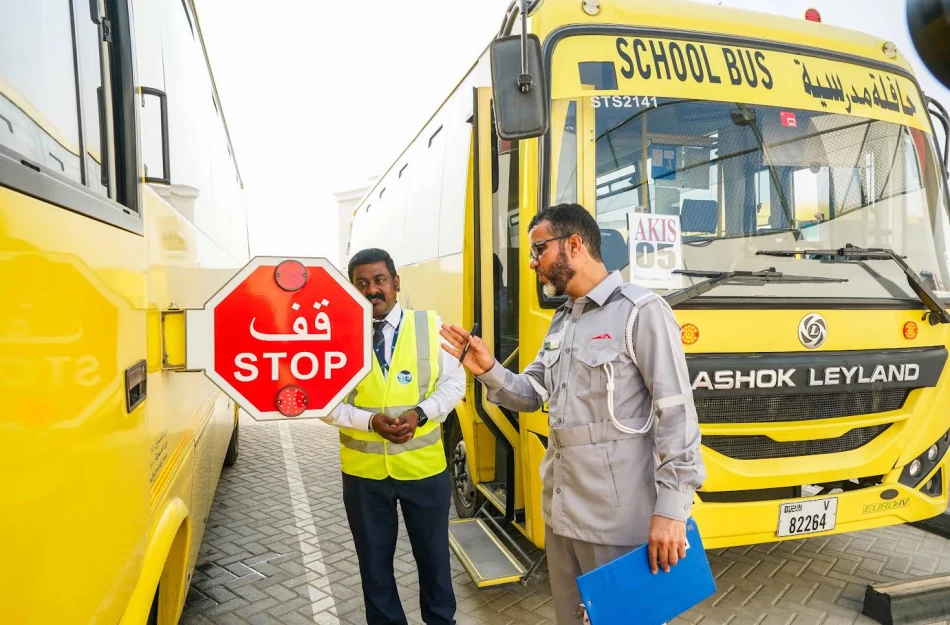
Dubai Roads Enhances Student Safety and Comfort with 7 Measures for School Buses
Dubai Tightens School Bus Safety Standards as New Academic Year Begins
Dubai's Roads and Transport Authority (RTA) has unveiled seven comprehensive safety measures for school buses as the emirate prepares for the 2025-2026 academic year starting next week. The initiative reflects Dubai's commitment to maintaining world-class transportation standards while addressing growing concerns about student safety amid the city's expanding educational sector.
Seven-Point Safety Framework Targets All Stakeholders
The RTA's new regulations mandate that all school bus operators achieve full readiness before the academic year launch, emphasizing the authority's vision of "global leadership in seamless and sustainable mobility." The comprehensive approach covers drivers, supervisors, students, and school administrators, creating a multi-layered safety net.
The measures include intensive training programs for drivers and bus supervisors, focusing on professional student interaction and emergency response protocols. Specialized RTA teams will conduct regular inspection campaigns to ensure compliance with school transport laws and regulations.
Driver Training and Traffic Compliance
The RTA has placed particular emphasis on driver education, requiring operators to ensure their drivers strictly adhere to traffic laws, especially in school zones. This includes specific instructions to avoid obstructing other vehicles, contributing to Dubai's broader traffic flow management strategy.
The timing of these measures aligns with Dubai's rapid urban expansion and increasing school enrollment, which has put additional pressure on the city's transport infrastructure during peak hours.
Technology and Communication Standards
Beyond traditional safety measures, the RTA requires operators to maintain continuous communication channels with parents, providing real-time updates about their children's daily commutes. This digital integration reflects Dubai's smart city initiatives and addresses modern parental expectations for transparency.
The authority emphasized that supervisors must accompany students to the nearest safe location to their homes, adding an extra layer of security that goes beyond standard drop-off procedures.
Broader Educational Infrastructure Context
These safety enhancements come as Dubai continues to position itself as a regional education hub, attracting international schools and expanding its student population. The emirate's investment in educational infrastructure has grown significantly, with school transport safety becoming a key differentiator for families choosing Dubai as their educational destination.
The RTA's proactive approach demonstrates how transportation authorities in major international cities are evolving beyond basic service provision to comprehensive safety management, setting standards that other regional transport authorities are likely to follow.
Industry Impact and Implementation
For school bus operators, these regulations represent both increased operational costs and improved service standards. The mandatory training programs and enhanced supervision requirements will likely consolidate the market around more professional operators while potentially increasing transportation fees.
The RTA's continuous monitoring system suggests a shift toward year-round compliance rather than seasonal inspections, indicating that Dubai is treating school transport as critical infrastructure rather than a supplementary service.
The implementation of these measures positions Dubai's school transport system among the most regulated globally, potentially serving as a model for other rapidly growing urban centers facing similar educational expansion challenges.
Most Viewed News

 Sara Khaled
Sara Khaled






